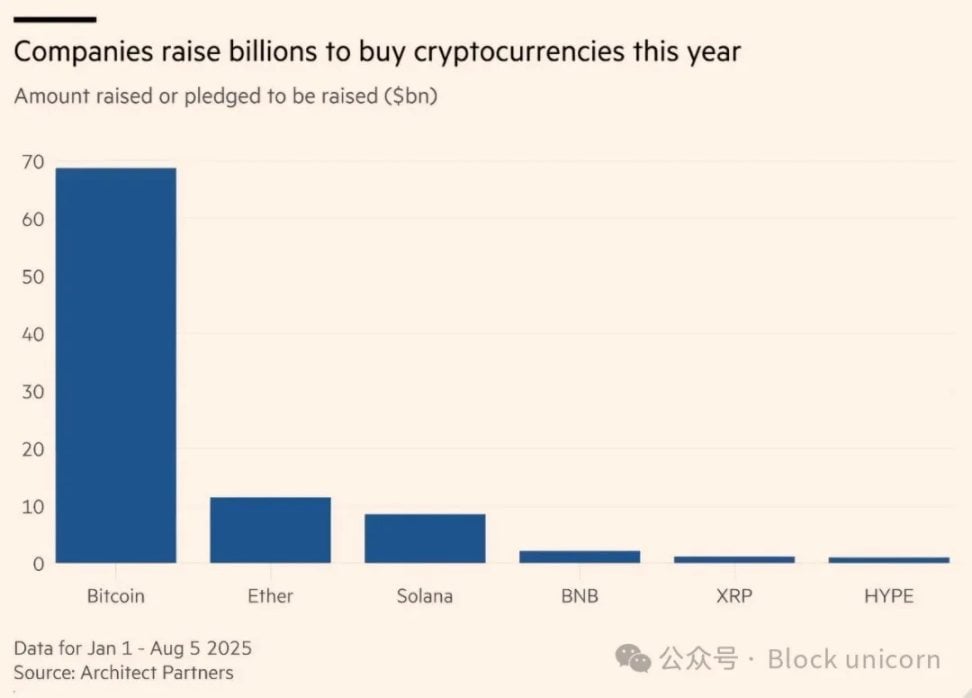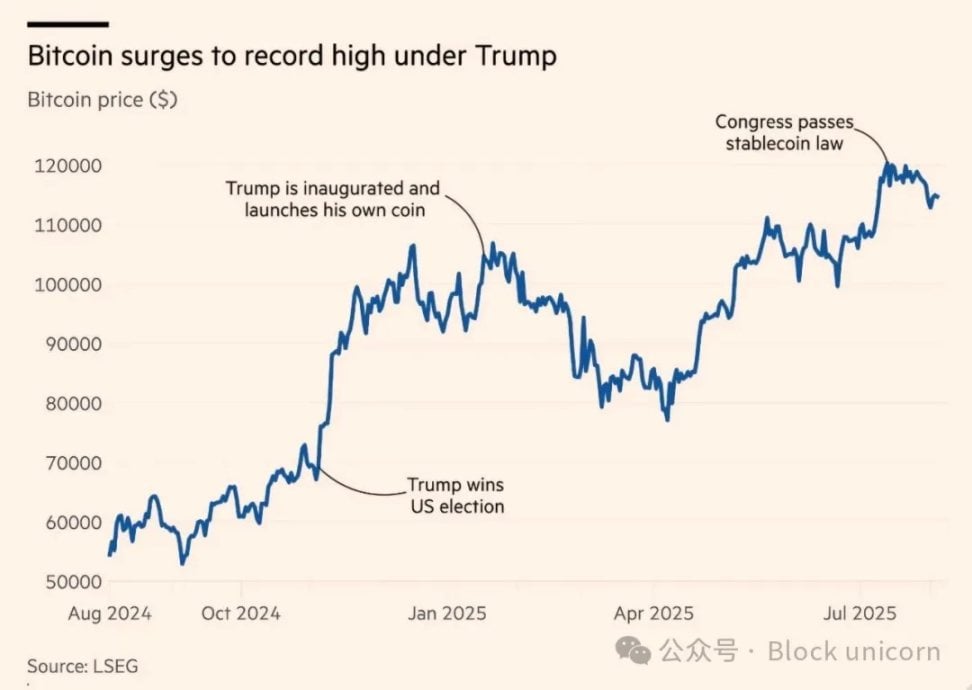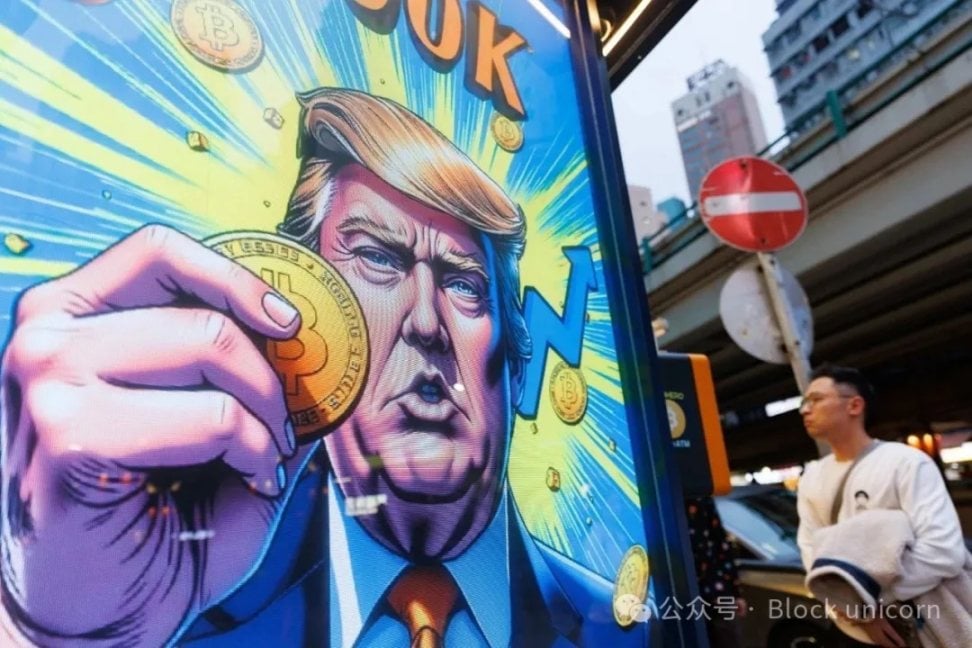Three months ago, George Calame had never considered that his semiconductor company would start buying Bitcoin.
With his New York-listed company's stock price long depressed, Calame became interested in Bitcoin after reading news about a healthcare company's stock soaring after purchasing digital currency. He said, "I was looking for ways to unlock the company's value" after a failed transaction scared off investors.
After consulting with the board and some investors, Calame decided to launch a Bitcoin strategy. Sequans Communications raised $384 million from debt and equity markets to purchase the world's most popular cryptocurrency. Its stock price surged 160% after the announcement.
Calame said: "I wouldn't have said this last year, but today I completely believe... I am 100% certain that Bitcoin will continue to exist."
This cryptocurrency novice largely owes his transformation to Bitcoin evangelist Michael Saylor. Since 2020, this American crypto tycoon has been spending billions of dollars buying Bitcoin almost weekly and hosting conferences to encourage others to follow suit. Saylor's software company, which has become a Bitcoin accumulator, is now valued at approximately $115 billion, almost twice the value of its Bitcoin holdings, as investors flock in. Last week, Strategy purchased $2.5 billion of Bitcoin, its third-largest purchase record. Its stock price has soared over 3000% in five years.
This success, coupled with former US President Donald Trump's full support for the digital asset industry, has inspired a surge in the number of so-called "crypto treasury companies" globally.
Biotechnology companies, mining companies, hoteliers, electric vehicle companies, and e-cigarette manufacturers are all rushing to buy cryptocurrencies, supported by investors who want to share in the crypto market dividends without directly touching digital assets.

According to crypto advisory firm Architect Partners, in the year leading up to August 5, approximately 154 listed companies have raised or committed to raising a total of $98.4 billion for cryptocurrency purchases. Previously, only 10 companies had raised $33.6 billion.
Some companies are mimicking Strategy, changing their website colors to Bitcoin's orange tone and providing data showing how much cryptocurrency they hold, its value, and other metrics important to investors.
Even Trump himself joined the action - his family media company raised $2 billion in July to buy Bitcoin and related assets.
In this year of Bitcoin and benchmark stock indices hitting new highs, traditional investment institutions are struggling to find the best way to participate in the new digital asset world, thus sparking a crypto accumulation trend.
However, many doubt the sustainability of this trend. Rapid growth has made some investors worry about market overheating. Bryan Estess, CEO of Off The Chain Capital, who has invested in multiple Bitcoin treasury companies, stated: "This is similar to the internet bubble of 1998" when companies raced to reposition themselves as web-first enterprises to attract attention.
The surge of new companies has also raised concerns about cryptocurrency price drops and their chain reaction. Companies that have borrowed billions to buy cryptocurrencies might soon find themselves unable to repay creditors.
Eric Benoist, investment banking technology and data expert at Natixis CIB, said: "The risk is a Bitcoin crash." In such a scenario, stock prices would also fall, and if companies cannot pay bondholders, investors would suffer losses. "This could cause a systemic impact on the Bitcoin ecosystem," he added. "Every time there's a small market panic, the entire market drops."
Kevin de Patoul, CEO of crypto market maker Keyrock, suggests investors should maintain a realistic attitude. "You're injecting massive risk into a system that ultimately has almost no support, except for the continued appreciation of assets."
For struggling companies, buying cryptocurrencies seems to be a foolproof method to attract investor attention and boost stock prices - at least temporarily.
Aidan Bishop, founder of London-listed Bluebird Mining Ventures, stated: "If we hadn't gone down this path, we would have struggled to raise future funds; we were like a dying company." The company raised £2 million in June to buy Bitcoin. Previously, "to raise funds, I had to go knocking on doors," he added.

Crypto evangelist Michael Saylor has spent billions buying Bitcoin since 2020 and hosts conferences to encourage others. His company Strategy's stock price has soared over 3000% in five years. Source: Travis P Ball/Sipa/ Reuters
Most new entrants are ordinary enterprises with no prior crypto experience, but their digital asset holdings far exceed the company's actual revenue.
For example, US thermal technology company KULR Technology has a market value of around $211 million, despite operating at a loss of $9.4 million in the first three months of the year. However, it holds Bitcoin worth approximately $118 million.
In the UK, web design company The Smarter Web Company only achieved a net profit of £93,000 in the six months ending April, but its market value is around £560 million due to its Bitcoin holdings worth £238 million.
The premium investors are willing to pay highlights their recognition of these crypto-holding companies' value.
Companies that demonstrate their commitment to continuing to raise funds to buy cryptocurrencies are rewarded by investors, whose stock valuations are higher than the value of Bitcoin they hold. To actually purchase these tokens, companies typically raise funds by issuing debt or equity, then use exchanges like Coinbase to invest in buying cryptocurrencies.
Speed is crucial. Estess states: "Ultimately, it's a speed issue. The goal is to increase the number of Bitcoins per share, and companies that can do this fastest will get high premiums."
For investors, "Bitcoin per share" - the number of Bitcoins a company holds per share - is a measure of success. If a company quickly buys more tokens, equity investors indirectly increase their Bitcoin per share - which is why investors are willing to pay premiums early on, hoping to hold more Bitcoin per share in the future.
Most companies buying Bitcoin are also operating other businesses, but the new wave of transactions involves shell companies that are buying or promising to buy large amounts of cryptocurrencies. These companies operate as Special Purpose Acquisition Companies (SPACs), raising funds to buy or merge with existing enterprises.
Rob Hardwick, general partner at venture capital firm Dragonfly Capital, says that when a company with an actual business buys Bitcoin, operational risks are "often actually higher": "You have an existing management team whose goals may change over time and might conflict with operational business priorities."
Executives are now starting to buy other tokens as the trend has expanded beyond Bitcoin. These tools also provide ways for those holding large amounts of cryptocurrencies to extract value without selling.

ReserveOne is a $1 billion transaction funded by investors including exchanges Kraken and Blockchain.com, planning to buy Bitcoin and other crypto tokens like Ethereum and Solana. Ether Machine raised $1.5 billion, planning to use it to buy Ethereum. Former Barclays CEO Bob Diamond raised $888 million through a SPAC transaction with a biotech company to buy HYPE tokens. CZ's venture capital firm led a $500 million transaction helping a Canadian e-cigarette manufacturer buy BNB, the token of Binance exchange co-founded by CZ.
Haddick stated: "We are obviously witnessing an unreasonable gold rush. It feels unnecessary to establish (investment tools) for all these different tokens."
For retail and institutional investors, cryptocurrency vault companies are an alternative way to gain token positions without directly holding tokens.
Some investors choose to do this through US exchange-traded funds (ETFs) launched by large asset management companies like BlackRock, Fidelity, and Invesco, which have accumulated over $100 billion in investments.
However, other investors cannot do this. In countries like the UK and Japan, cryptocurrency ETFs have been banned as regulators try to protect investors from digital asset volatility risks. Therefore, vault companies serve as a proxy tool, providing investors with an indirect way to access cryptocurrencies through tradable instruments.
Taylor Evans, co-founder of UTXO Management, said: "Many institutions (investors) simply cannot invest in ETFs or directly hold (cryptocurrencies)." He added: "We believe Bitcoin vault companies fill this gap by issuing securities that comply with investment permissions." His company, with $430 million in assets, invests 95% in Bitcoin asset management companies.
Investors are also taking advantage of tax arbitrage opportunities between holding crypto assets and stocks in some countries. In Japan, cryptocurrency gains are taxed up to 55%, while stock tax rates are 20%. In Brazil, cryptocurrency gains are taxed at 17.5%, compared to 15% for stocks traded on exchanges.

US President Donald Trump's full support for the digital asset industry has stimulated the flourishing of "cryptocurrency vault companies" globally. Source: May James/SOPA/Getty Images
Therefore, investing in companies holding large amounts of cryptocurrencies may be more tax-efficient than directly holding cryptocurrencies.
Eager investors are searching globally for new countries with similar tax structures to generate profits. Estes stated: "The US market is now saturated... We are looking for opportunities outside the US."
The new alliance between cryptocurrencies and capital markets is ironically contrary to their original mission of disrupting traditional financial markets and staying away from the prying eyes of large institutions.
Raising debt and equity from investors is the core strategy and a necessary condition for maintaining operations. Stock prices of companies not purchasing cryptocurrencies quickly enough have begun to decline.
Although Sequans Communications' stock price surged 160% after starting to buy Bitcoin, it has now fallen back to pre-purchase levels, reflecting investor dissatisfaction with its purchase pace.
Estes said: "When you combine Wall Street and cryptocurrencies, you need a market that can support this harvest."
To expand, many such companies are planning to go beyond being mere cryptocurrency pools listed on global stock exchanges.
Diamond said his investment tool focused on HYPE tokens might acquire other cryptocurrency vault companies. "If they struggle, we can acquire and rebuild them," he said. "This will create opportunities for the strongest, frankly, by buying out poorly managed or underfunded companies."
Meanwhile, Japan's Metaplanet, the fifth-largest corporate Bitcoin buyer globally, plans to borrow against its massive token reserves and transform into a cryptocurrency financial services company.
US thermal company KULR is also exploring "Bitcoin-backed financial services" like lending, and Panther Metals' CEO Darren Hazlewood says they plan to fund future exploration projects using their Bitcoin holdings.
Benoist from Natixis CIB stated: "The natural evolution is financial services, because you can support your financial commitments with a pile of Bitcoin."

Attendees pose for a photo after US Vice President JD Vance's keynote speech at the Bitcoin conference in Las Vegas. Stock prices of companies not purchasing cryptocurrencies quickly enough have begun to decline. Source: Ethan Miller/Getty Images
However, cryptocurrency lending is a high-risk business. In 2022, the lending market collapsed due to a series of defaults triggered by price drops, leading to the FTX exchange's bankruptcy.
Benoist added: "My main concern with this strategy is that I'm not sure how it will end. Companies get trapped in a cycle where they must continuously purchase more to maintain the cycle, then return to the market to buy more - this cycle must continue to justify the premium."
The biggest risk is how deep the damage will be when - or if - cryptocurrency prices crash. Inevitably, a cryptocurrency market downturn means stock prices of companies tied to tokens will also decline.
Companies with debt face greater risks, as they need to pay interest to investors and may be forced to raise more funds or sell their cryptocurrency holdings to meet debt obligations.
A cryptocurrency hedge fund manager said: "If you're using debt to repay existing debt, this structure is very unhealthy and makes me very uneasy." He added: "You might face systemic risks because there are too many fragile structures that need to be fully or partially unwound, which will put pressure on the market."
He also stated: "I hope regulators will regulate this, rather than everyone assuming the market will always rise and establishing vaults."
Investors acknowledge the risks but are eager to make money during boom periods. Evans from UTXO Management, who serves on the board of multiple cryptocurrency vault companies, says he is pushing CEOs to "generate cash through operational business during market downturns and earn returns from Bitcoin through means other than raising capital".
However, even industry stakeholders are becoming increasingly skeptical. Estes said: "This will end with a bubble burst. They can rise as quickly as they can fall."






